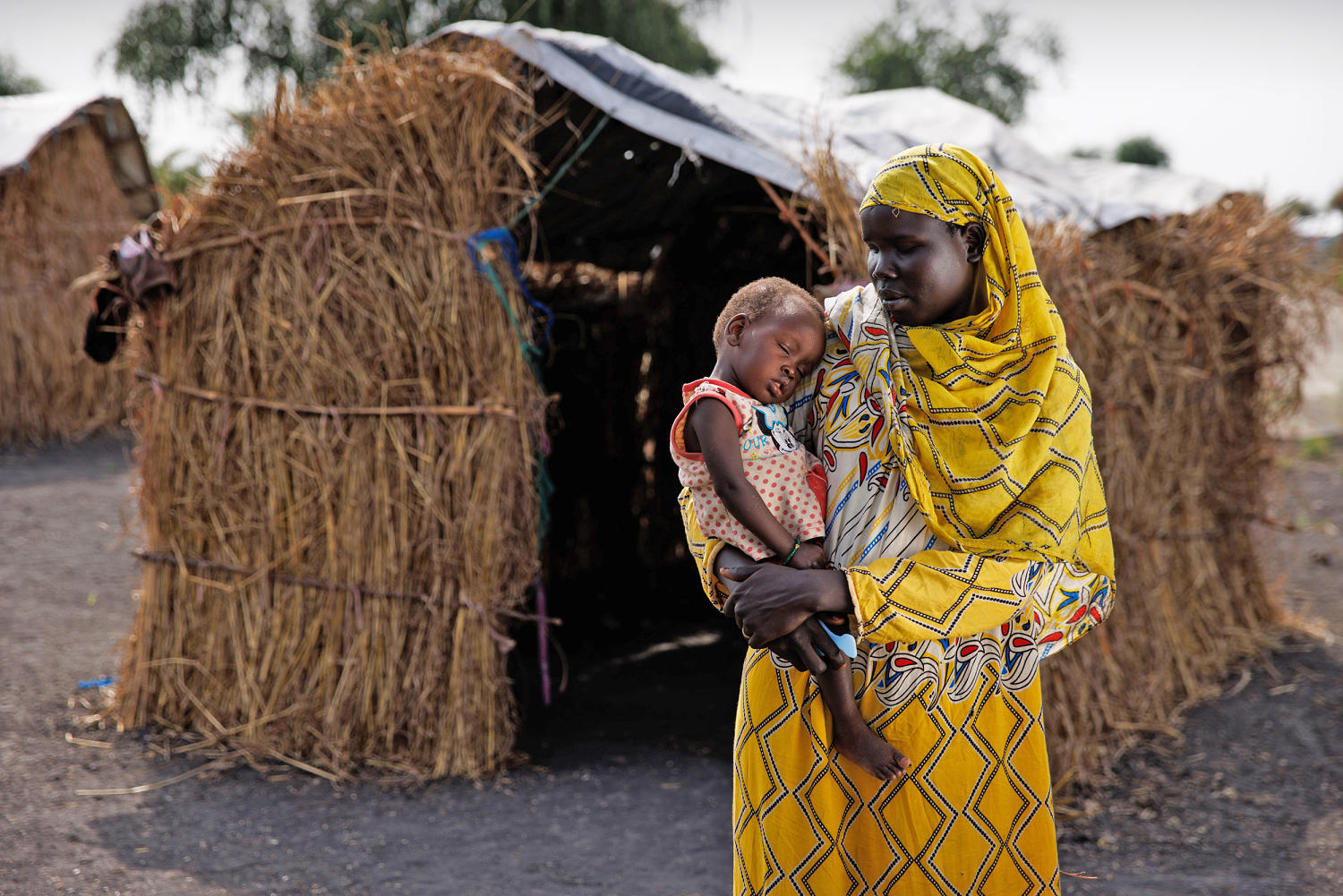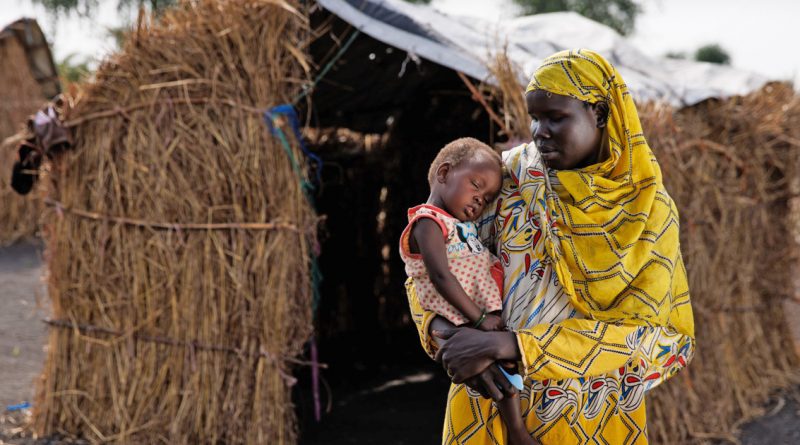Sudan war is ‘world’s largest child displacement crisis’ with millions facing malnourishment, UNICEF says

The civil war in Sudan is “the world’s largest child displacement crisis,” and as the conflict rages on, millions of children face malnutrition, UNICEF said Friday.
Around 3 million children have been displaced in the country since the outbreak of the war about 300 days ago, according to the United Nations humanitarian aid organization.
An estimated 3.5 million children in the country will suffer from acute malnutrition this year. For about 700,000, it could be life-threatening, UNICEF said in a statement.
UNICEF spokesperson James Elder, who recently visited Darfur, said in a news release that the organization “won’t be able to treat more than 300,000 of those children without improved access and without additional support.”
“In that case, tens of thousands would likely die,” he said of the children.
Sudan plunged into chaos last April with street battles between two generals’ rival forces in the capital, Khartoum, that spread to other areas.
Western Darfur, which was wracked by bloodshed and atrocities in 2003, has been an epicenter of the current conflict, an arena of ethnic violence where paramilitary troops and allied Arab militias have been attacking African ethnic groups.
“The lethal combination of malnutrition, mass displacement, and disease is growing by the day, and we have an extremely short window to prevent a massive loss of life,” said UNICEF Executive Director Catherine Russell, who called for “unimpeded humanitarian access” and international support.
A food security analysis of Sudan showed “the highest levels of hunger ever recorded during the October-February harvest season” after insecurity spread to Jazeera state, the country’s breadbasket.
“Unless humanitarian assistance can be significantly scaled up, parts of Khartoum, Kordofan and Darfur will face an elevated risk of catastrophic hunger conditions by the next lean season, which could begin as early as March this year,” UNICEF said.
It is critical to get aid into Darfur, where one-third of the displaced population lives, and where 200,000 children may suffer from severe acute malnutrition, which puts them at greater risk of dying of disease, the organization noted.
Severe acute malnutrition can require “specialized, uninterrupted, life-saving treatment,” UNICEF said.
Two-thirds of people living in Sudan lack access to health care, according to UNICEF, which said the spread of disease in overcrowded and unsanitary displacement sites has led to anecdotal reports of spikes in deaths among children.
Around half of all children in Sudan — about 14 million — require humanitarian aid. Thousands have been killed or injured, and others have been exposed to sexual violence or recruited for war efforts, according to the organization.
The U.N. Office for the Coordination of Humanitarian Affairs made an appeal this week for $2.7 billion to provide urgent aid to Sudan, according to a news release. UNICEF is asking for $840 million in 2024.
UNICEF reiterated calls for a cease-fire in Sudan.
“The impact of nearly 10 months of war, displacement, disease, and deprivation on Sudan’s 24 million children is horrific,” Russell said.
U.N. Secretary-General António Guterres on Thursday called for an end to the fighting, and said there is no military solution to the conflict between forces supporting the rival generals — Gen. Abdel Fattah Burhan, who leads Sudan’s military, and Gen. Mohamed Hamdan Dagalo, the commander of the paramilitary Rapid Support Forces.
Guterres said in a U.N. news conference that it’s time for the rivals to start talking about ending the conflict, which has killed at least 12,000 people and sent over 7 million fleeing their homes.




